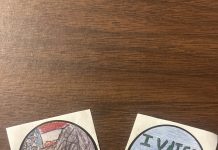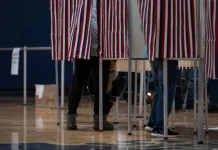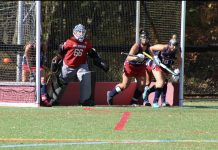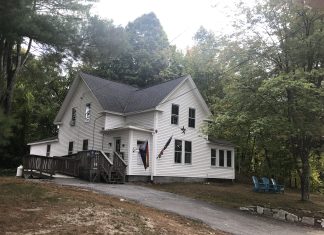I am a six-year United States Army veteran and I served as a 19K Abrams Armor Crewmember. I was on an Abrams tank, M1A2SEPv2 main battle tank with a 1500 horsepower turbine engine. It is 70 ton fully loaded, meaning all four fuel cells are filled, roughly 72 tons with all weapon systems, max ammo and personal gear. The main armament is a 120mm smooth bore cannon, meaning there is no rifling like a rifle would have to provide.
I did my basic training at Fort Knox in Kentucky. Tankers are what we are referred to as. We do basic and AIT (Advanced Individual Training) a little different than most MOS’s (Military Occupational Specialty). We do One Station Unit Training, or OSUT. We stayed at Fort Knox for our entire basic and AIT segments; other MOS’s go to different duty stations after their basic for their AIT segment of training. There are a handful of MOS’s like us that do this. My MOS is what is called a combat arms MOS, we only did our job when we were deployed to war. The rest of the time we were training for war. We had to learn the best tactics to defeat the enemy on both our tank and the ground.
I was part of 1st Armored Division, 5th Brigade, 2nd CAB (Combined Arms Battalion), out of Fort Bliss in El Paso, Texas. I re-enlisted and received orders to move duty stations, and was sent to Hawaii where I was part of the 25th Infantry Division, 2nd Brigade, 1st Battalion, 27th Infantry Regiment. Upon my arrival and in processing to my new duty station, the talk of going to Iraq was constantly brought up. This would be my first and only time to the sand box. One problem for me was that the 25th Infantry Division does not have tanks, and I had to learn a whole new vehicle for our deployment. I left Fort Bliss as a gunner and was quickly recognized as someone who knew how to be a gunner after displaying my skills at the first firing range I went to on our Strykers. I was my platoon sergeant’s gunner for our deployment to Iraq, and was on an ICV (Infantry Carrier Vehicle) Stryker and became what is called a truck commander. It was pretty much a glorified title for gunner, but I was in charge of the vehicle’s maintenance and upkeep. I had to have it combat ready at all times.
I got out of the Army and came back home to Henniker. It was very difficult at first; I had been in this routine for six straight years and all of a sudden it was over. I knew where I stood in the hierarchy of the Army, knowing my rank compared to other people’s rank. The way I addressed people when I talked to them was violent and angry from what I was told. I didn’t have patience for dumb things or people not understanding. I talked like I was still in the Army, like people understood the jargon I was using, but they always looked at me with this confused look. I had this anger and I didn’t know where it was coming from or how to deal with it. I felt very distant from everyone, including my own family. If someone didn’t understand something I was saying and didn’t comprehend what I was saying, I would become this asshole and revert back to the Army like I was talking to a new private that was screwing up every day and pissing me off on a daily basis. Over the years this has subsided and has gone away. I can now explain things to people without getting all worked up and swearing my head off at them.
One of my biggest reasons for joining the Army was to get money to go to college. I didn’t know what I wanted to study and where I wanted to go for school, so I ended up getting a job for a few years. I was working for a construction company making $30 an hour and one day, I just quit. It was late August and just in time for the start of school. I saw what was out there in the civilian world for jobs and thought about where I could fit in, what skills the Army provided me that I could put to use.
I settled on Business Administration and started college at NHTI. I was thinking that I would get an Associate’s degree and with my veteran status I could try my luck again in the civilian world. In my second year at NHTI I felt like I wasn’t reaching my full potential with school and wasn’t really living up to the standards of the Army that I learned and implemented in my six years of service. I transferred to NEC and started working towards my Bachelor’s degree.
Ending my Army career and starting over as a student where I was a lot older than the other kids and going to class was a real challenge. I was a part of a great organization with comradery, discipline, integrity and all the things that make soldiers what soldiers are. These were things you had to have within yourself; the Army could teach you how, but you had to learn and become these things on your own.
Now I am walking to class and see kids with their faces in their phones not paying any attention to the world around them. I look at second story windows and roof tops, cause that’s what I did when I was in Iraq; situational awareness is one thing I could not shake, and I was diagnosed with Hyper Vigilance PTSD, which means I’m constantly scanning the area for anything bad, even in the classroom. I’m the guy in the back of the classroom; I sit there because of the PTSD I suffer from, I see what everyone is doing. Kids constantly on their phones in class or on their laptops shopping for clothes or looking at sports gear. I have to survey the classroom several times in one class, just to see what’s happening.
I am not only older than most students, I have actually had a few professors that I was older than. I have more real-world experience than some of the young professors do; they came straight out of college and started to teach. It really is mind-boggling sometimes to me. I don’t really feel like the other students are my peers, yet we are supposed to be. I feel like they don’t look at me like a peer and I don’t look at them like it either. When I walk into a classroom, I feel like students look at me and say “who’s the old guy.” I don’t feel old, but sitting in a classroom of 18-22 year old students every day, I feel the gap in age.
When I walked into class on my first day at NHTI, all the students got quiet. I sat down in the back, a few turned around and looked at me. I said “Hi,” they turned back around not saying anything back. As it got closer to the time for class to start, about a minute to go, one student turned around and asked me if I was going to start the class. I was so confused as to what he meant by this at first. I replied with “why would I start the class?” The professor walked in and addressed the students, apologizing for his tardiness, and again a few students turned around and looked at me; this time I just gave them a little wave. I realized they saw me as an older person who was old enough to teach a class. Maybe I could, but it would be on tanks, or vehicle identification of foreign vehicles.
When I was in the Army, I was constantly thanked for my service. I was approached by so many people when I wore the uniform and thanked. When I got out, I received less and less of it. Not that I’m looking for recognition on a daily basis, to be honest I feel awkward when people say it; how does one reply was my biggest question and all I ever came up with was “thank you for your support.” When other students find out I was in the Army and had been to Iraq there is always that one question, “Did you kill anyone?” Why do they want to know this so badly? Why is that always their first question? I just tell them that it was hot in Iraq or ignore them. Or tell them a story about how hard it was in Iraq. I feel the question of “did you kill anyone?” is a little disrespectful. I didn’t enlist to kill people, I did it to take the fight away from my country and to my enemy’s country, so it was on their front lawn, not that I saw any grass while over there. I didn’t want terrorists striking again like they did on 9/11 and killing innocent people trying to live the American way of life.
The one thing I miss the most from the Army is my brothers. We are not related, we don’t have the same parents, some are white, black, Native American, Jewish, Catholic, it didn’t matter. We had a lot of bad moments together and a few great ones, but it’s those hard times we remember more. The times when things were difficult and we overcame them together, pushing each other and never quitting for the guy next to you, my brothers. The comradery we shared is like no other and I think it is why I feel more alone in school. I’m engaged in school head on without my brothers next me, going through this very stressful time of papers and projects due on a weekly basis. No one but myself to push for it and get the job done. I don’t feel any rapport with other students. It’s how it is, but it’s difficult to sit in the back by myself every day and I feel like I have no one in my corner, like I did in the Army.
Even keeping up with relationships with my friends from town is hard. They are working all day, Monday through Friday, and when they ask for me to hang out, my reply is “homework” or “I have to go to work,” again I feel disconnected to the people around me. The transition to being a student has been a difficult one, but I have endured way worse then just being older than my peers in a classroom.




















Thank you for sharing your experience and perspective, Richard.
Your honesty has served to enlighten me, and I’m sure others as well.
Best wishes in your senior year at NEC and your future.